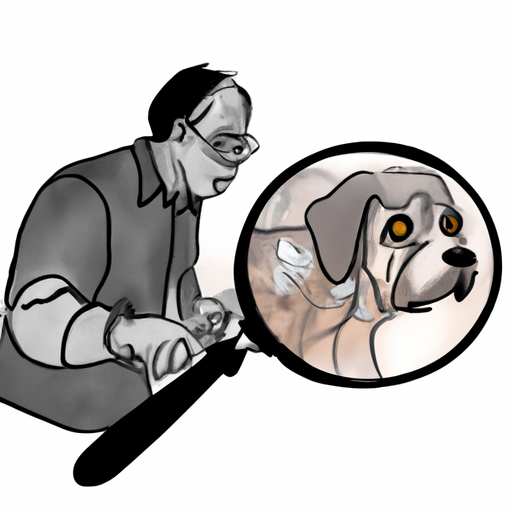Cancer is a word that no caregiver wants to hear when it comes to their beloved pet. However, early detection can significantly improve your dog’s prognosis and quality of life. As a diligent pet owner, it’s crucial for you to recognize the signs and symptoms of cancer in dogs to ensure their health and happiness.
Understanding the Common Types of Cancer in Dogs
First, let’s equip ourselves with knowledge about common types of cancer in dogs:
- Lymphoma: This affects the dog’s lymph nodes.
- Melanoma: This is a skin cancer that can be quite aggressive.
- Mast Cell Tumors: These affect the cells that respond to allergies and inflammation.
- Osteosarcoma: This is a type of bone cancer common in larger breeds.
- Hemangiosarcoma: This affects the blood vessels and spleen.
Recognizing Physical Changes
Physical changes are often the most obvious signs that something may be wrong with your dog. Here’s what to look out for:
- Unusual lumps or swellings that persist or continue to grow.
- Sores that do not heal.
- Weight loss, even if your dog is eating a normal amount.
- Difficulty eating or swallowing.
- Bleeding or discharge from any body opening.
- Offensive odor.
- Loss of stamina or reluctance to exercise.
Observing Behavioral Changes
In addition to physical changes, behavioral changes can also be indicative of cancer in dogs. You know your pet better than anyone else. If you notice any of the following changes, it may be time to consult a vet:
- Decreased interest in playing or exercising.
- Excessive panting or difficulty breathing.
- Frequent urination, especially if accompanied by weight loss.
- Persistent lameness or stiffness.
Understanding Diagnostic and Treatment Options
Early detection is key, so regular vet check-ups are crucial. If your vet suspects cancer, they may recommend diagnostic tests such as blood tests, urinalysis, X-rays, ultrasounds, or biopsies.
Cancer treatments for dogs vary based on the type and stage of cancer. Options may include surgery, chemotherapy, radiation, immunotherapy, or a combination of these.
| Treatment Type | Description |
|---|---|
| Surgery | Removal of the tumor |
| Chemotherapy | Use of drugs to kill cancer cells |
| Radiation | High-energy rays to kill cancer cells |
| Immunotherapy | Treatment that uses the body’s immune system to fight cancer |
Frequently Asked Questions (FAQs)
Q: Are certain breeds more prone to cancer?
A: Yes, some breeds like Boxers, Golden Retrievers, and Rottweilers are more prone to certain types of cancer.
Q: Can a healthy diet prevent cancer in dogs?
A: While no diet can guarantee prevention, a balanced diet can boost your dog’s overall health and immunity.
Q: Can younger dogs get cancer?
A: Cancer is more common in older dogs, but it can occur at any age.
Remember, it’s essential to consult with your vet if you notice any changes in your dog’s physical or behavioral health. You’re their best advocate for a healthy, happy life!



